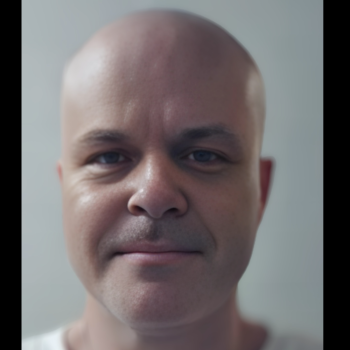 Last week I introduced my freshmen writing students to Joan Didion. It was an introduction I was both nervous and excited to make. I assigned a difficult essay, "The White Album," from her collection of same name. It begins with the famous line "We tell ourselves stories in order to live," but as an introduction, that is a bit of misdirection. She proceeds in the second paragraph to describe a five-year period, between 1966-1971, in which she lost the narrative thread, in which she "began to doubt the premises of all the stories I had ever told myself." What follows is fifteen seemingly disparate parts, each recalling nearly isolated memories from that time period including the author's fragile psychological state, being in a recording studio with the Doors, living in a dangerous neighborhood in Los Angeles, hosting drug-addled parties, and the closest thing to a connecting narrative, reporting on the Manson murder trial.
Last week I introduced my freshmen writing students to Joan Didion. It was an introduction I was both nervous and excited to make. I assigned a difficult essay, "The White Album," from her collection of same name. It begins with the famous line "We tell ourselves stories in order to live," but as an introduction, that is a bit of misdirection. She proceeds in the second paragraph to describe a five-year period, between 1966-1971, in which she lost the narrative thread, in which she "began to doubt the premises of all the stories I had ever told myself." What follows is fifteen seemingly disparate parts, each recalling nearly isolated memories from that time period including the author's fragile psychological state, being in a recording studio with the Doors, living in a dangerous neighborhood in Los Angeles, hosting drug-addled parties, and the closest thing to a connecting narrative, reporting on the Manson murder trial.
With not altogether clear intentions, I asked my bleary-eyed Monday morning students what ties all these incongruent instances together. We sat for a while in that awkward silence that descends on a class that doesn't know the answer. And yet, I waited. Finally, however, when it was clear that no one was taking the bait, I offered some relief. "Somebody just raise your hand and say, 'I don't know.'"
And so they did. Several hands sprung into the air and without waiting to be called on they blurted out, "I don't know."
"Exactly," I said. "Neither did she." Didion binds the disparate pieces together in a manner that is both disturbing and confusing; in that way we begin to get a sense of what it felt like to be in Los Angeles in the late '60s. The important lesson here was that "I don't know" is sometimes the best answer. But even if my class opted, instead of silence, for taking guesses as to what Didion meant by collecting disjointed memories into an essay, there's an excitement in that too. There's the chance that one of them might have stumbled upon a reading I had not considered.
This is why I love literature. Ultimately, this is why I love my favorite piece of literature, the Bible. What used to feel like the ultimate frustration—that all of scripture is open for interpretation, that my reading always turned up a lot of "I don't knows"—now seems like the greatest gift.
I've recently been contemplating what we can learn of God's character when we consider all the ways he could have chosen to reveal himself, and the primary way he did so. I don't know why God chose the written word, but I'm thankful he did. I'm thankful that the answers to every question are not built into my psyche. I'm happy that interpretation is an exercise of free will. I'm saddened and frustrated when I can't agree with a fellow believer about the meaning of this or that passage, but I like to be reminded in those moments of disagreement that this is the way God designed it. On the flip side, I'm particularly wary whenever I hear anyone say, as they often do, "because the Bible says so." This simple phrase, which at least in my own etymology has roots in the Sunday school song "Jesus Loves Me," assumes that the Bible says things simply, that the meaning simply rests upon the surface of the text, plain for all to see. But this is not the case of any written text, least of all an ancient text passed down through millennia.
When I was in college, as an English major, I was simultaneously inspired and horrified by the concept of deconstruction. The idea that meaning is not latent in a text—an idea espoused by the French philosopher Jacques Derrida, and first introduced to me through his essay "Structure, Sign, and Play in the Discourse of Human Sciences"—opens up an entire world of possibilities. And, depending on how you feel about a new world full of possibilities, it can be either inspiring or overwhelming, or both.
The philosopher and theologian John D. Caputo is very helpful in understanding the applications of deconstruction on theology. In What Would Jesus Deconstruct?, his unfortunately-titled contribution to "The Church and Postmodern Culture" series, Caputo writes that "we cannot simply and straightforwardly 'derive' a course of action" from the New Testament. He continues, "We need instead to 'arrive' at an instantiation, a concretization, a way to translate into existence, all the while letting it happen to us, allowing ourselves to come under its spell and be transformed by the event it harbors."
For Christians, I believe, we should understand this opportunity to let the text happen to us as particularly enlightening about who God is and what he values. For one thing, when it takes work to understand the meaning of a text, it is much more likely to become a communal endeavor. We have the opportunity to interact, converse, and engage together in an effort to understand and uncover the event that the text is attempting to name.





